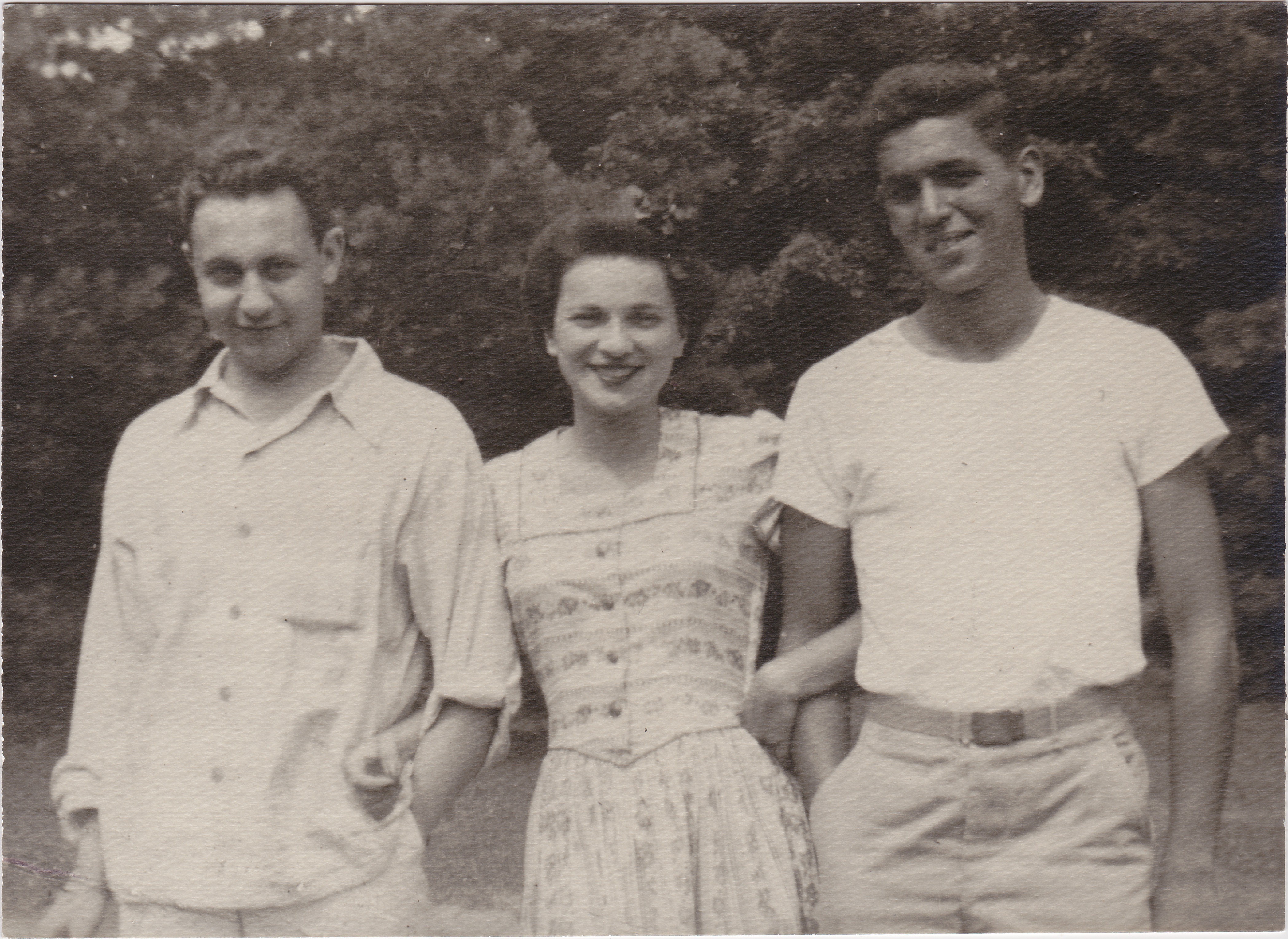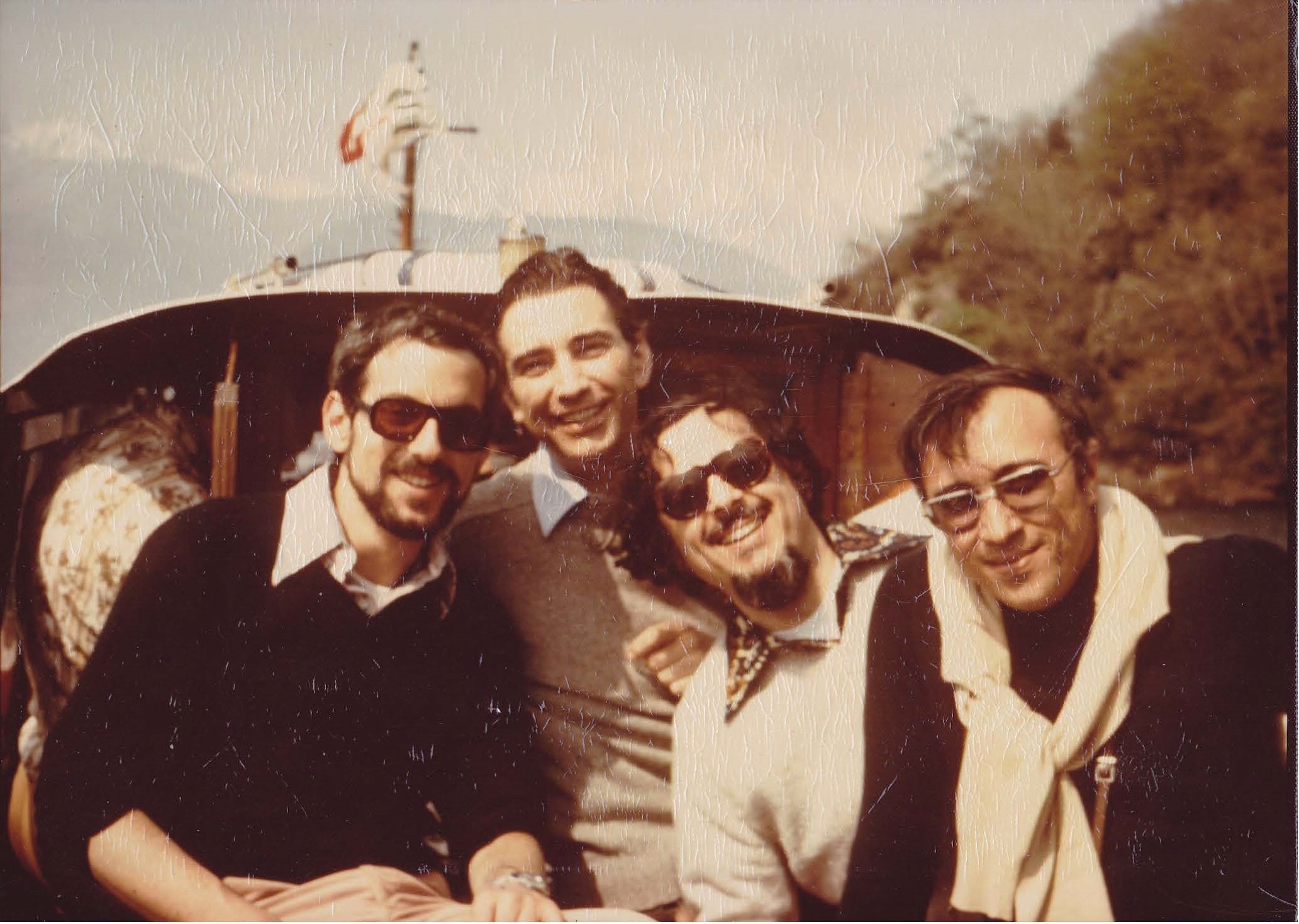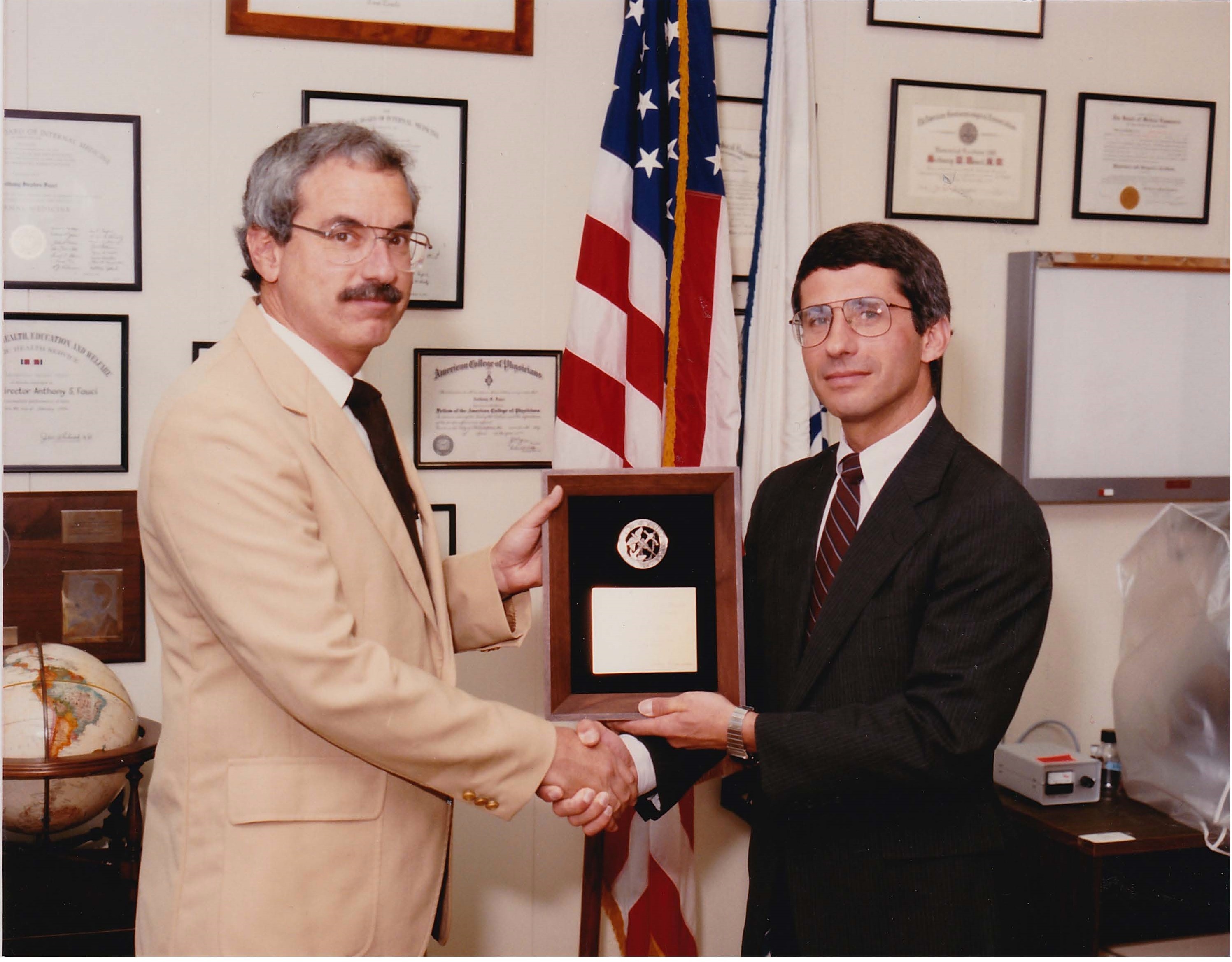...
Download the PDF: Sher_Alan_oral_history (271 681 kB)
This is an oral history with Dr. Franklin Alan Sher on June 17th, 2021, about his career at the National Institute of Allergy and Infectious Diseases (NIAID). The interview is being conducted via Zoom. The interviewer is Dr. Victoria Harden, Founding Director, Emerita, Office of NIH History and Stetten Museum, National Institutes of Health.
...
My mother was also a Ph.D. scientist. She was a microbiologist and obtained her degree in the early 1940s when it was still extremely rare for women to pursue doctoral programs but she did. She continued to work in the laboratory at Hoffman La Roche and later the Montefiore Hospital in the Bronx until I was about 6 years old. Although neither she nor my father pushed me toward a career in science, they at least supplied me with the appropriate genes. There is a wonderful photo of my parents as Ph.D students at Penn State (Pennsylvania State University) in the early 1940’s that I sent you.
Photo 1: Alan’s immediate family, group portrait from left: Alan’s father, Seymour (Cy) Schuman, Ph.D. (Physical organic chemist); Alan’s mother : Roslyn Lepow Sher, Ph.D. (clinical microbiologist); Alans Uncle: Irwin (“Lee”) Lepow, MD, Ph.D. (immunologist/pathologist). Location: State College, PA. approximately 1943.
Harden: I was going to ask you about the photograph. Can you tell me who the three people in the photo are? I presume your mother's the woman, in the middle.
...
Realizing this four of us (“The Salk Institute Four”) decided to go into parasitic disease research with the goal of trying to make a difference in this largely neglected field. We all began by reading up on parasitology in our spare time and were drawn to a particular helminth induced disease called schistosomiasis. My colleagues in this venture were Donato Cioli [Dr. Donato Cioli], who established a schistosome research group in the Institute of Cell Biology and Neurobiology of the National Research Council in Rome, Italy; the late Paul Knopf [Dr. Paul Knopf], who set up a lab working on the immunology of schistosomiasis at Brown University; and Italo Caesari [Dr. Italo Caesari], who set up a schistosome biochemistry laboratory at the Venezuelan Institute of Scientific Investigation in Caracas. I have provided you with a wonderful photo of the 4 of us on Lake Como at a Rockefeller Foundation sponsored meeting in the early 1970’s.
Photo 2: Alan with “Salk Institute Four” (l-r Alan, Dr. Donato Cioli, Dr. Paul Knopf, Dr. Italo Cesari) at Rockefeller Foundation meeting on schistosomiasis, Bellagio (Lake Como), Italy, 1976
I also chose to pursue this field for my postdoctoral work. The Brits and the Aussies were the most accomplished parasitologists in those days. I decided to seek training at probably the most famous, and at that time certainly one of the top two schistosomiasis labs in the world, located in London at the Division of Parasitology of the National Institute for Medical Research at Mill Hill.
...
Harden: You have no doubt had numerous offers to leave the government and take a more remunerative position in academia or industry. But you have stayed at NIH. Would you comment on what keeps you here, despite all the rules and restrictions of a federal career? What has NIAID offered you that kept you here?
Photo 3: Alan receiving Director’s Award from Anthony Fauci (1986).
Sher: NIAID has been terrific. Most of my time here, our institute director has been Tony Fauci. And I flatter myself by calling myself “one of Tony's boys” (see photo of Tony giving me an award in the mid 80’s). I think he's an amazing leader and have enormous respect for him. Although he's really much more clinically oriented than I am, he's still been good to me, forwarded my career and been there for me when I needed him.
...




